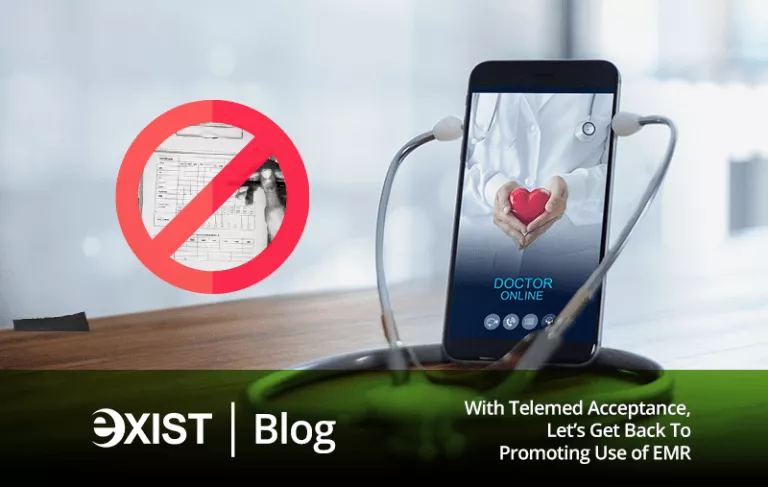Like telemedicine, healthcare innovations promise a great deal of potential, but also present some profound challenges, at the top of which is increased fragmentation of care! Introducing once again, the overlooked EMRs!
Back in 2011, tech giant, Google suffered one of its rare missteps with the shutdown of Google Health. While its new incarnation has been focused on AI, deep learning, and predictive analytics, the failure of its online personal health record system continue to remain neglected and dumbfounding despite the plausible reasons.
Disparate and Incomplete, rejecting health maintenance
The founder of EHR vendor Epic, Judy Faulkner, recently noted the surprising fact that only 0.5% of users are actually interested in managing their own health records, putting into question the usefulness of the patient portal. It’s possible that multiple disparate and siloed communications options add to the confusion and fragmentation.
Expectations are also changing as patients become accustomed to consumer experiences through other industries, such as eCommerce, banking, and retail. Like most people, patients crave the path of least resistance and demand the same from healthcare providers for convenience, relevance, and added value such as positive care experiences. Healthcare service is now not just about more staff but platforms that support patient engagements.
The Cost of Fragmented Experiences
For the longest time, the financial cost of fragmented care seemed unquantifiable. But studies from Harvard have shown that high care fragmentation for chronically ill patients leads to $4,500 in higher healthcare spending, which can be $10,400 for those with the most fragmented care.
Moreover, the cost of fragmentation from a patient’s perspective is more than can be measured by a dollar figure. At best, it adds to the patient’s burden of medical care coordination. This stress along with a sick condition is a terrible situation that often leads to less effective care and poor outcomes as care transitions fail and multiple care professionals that fail to work as a team.
Use EMRs Now.
Based on necessity, acceptance of telemedicine and virtual consultations has never been higher. With the uncertainty of Covid, it doesn’t seem that physical consultations are coming back soon.
But as far as technologies go, resolving the type of consults is not enough.
Health records remain as the fundamental element for medical treatment and service. The more comprehensive the record, the more data can help guide the doctors towards evidence-based decisions. However, unlocking the promise of information will remain a pipe dream if records are still kept on paper.
While the debate over interoperability remains unresolved, healthcare cannot simply wait and to decide on electronic medical records use. EMRs are way better than paper and easier to aggregate and keep for sharing among different providers especially when absolutely required. In theory, one can send this via email or share it through mobile devices. Security and privacy issues aside, completeness of health records is at the top of the list for the patient making care decisions and curbing unnecessary cost and waste. Ideally, one can look at the patient record providing longitudinal care history while acting as a central hub for all medical services and providers.
Apart from the very reasons above, the importance of getting real (or near-real) time data cannot succeed without a suitable electronic format. In the high-stakes game of epic global infections, the need for credible and timely data is a valuable means of controlling the spread and dictating strategy.
There are care professionals and medical institutions that believe they could still afford to hold back on the use of EMRs for a variety of reasons. The truth is that the survival of millions is now at stake and time is ripe for people everywhere to change their perception of healthcare from temporary discomforts to a valued preoccupation where medical data is as valuable a currency as the cure. Because otherwise, we will all have to pay the price and hopefully, not with our lives.
Check Out Medcurial
Check out our healthcare product, MEDCURIAL, and see how it helped some of the biggest hospitals in the country provide better patient outcomes.

